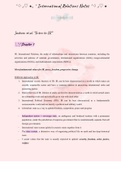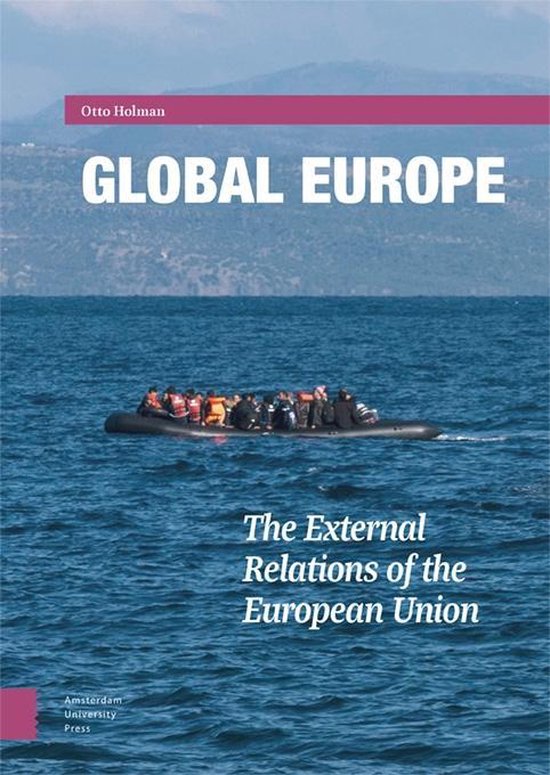˚ ༘♡ ⋆。˚ International。˚Relations Notes ˚ ༘♡ ⋆
Jackson et.al. “Intro to IR”
┊͙ ˘͈ᵕ˘͈Chapter 1
IR: International Relation; the study of relationships and interactions between countries, including the
activities and policies of national governments, international organizations (iGOs), nongovernmental
organizations (NGOs), and multinational corporations (MNCs).
Most fundamental values for IR: peace, freedom, progressive change
Different approaches to IR:
1. International society theories of IR: IR can be best characterized as a world in which states are
socially responsible actors and have a common interest in preserving international order and
promoting justice
2. Realist theories of IR: relation of states can best be characterized as a world in which armed states
are competing rivals and periodically go to war with each other
3. International Political Economy (IPE): IR can be best characterized as a fundamentally
socioeconomic world and not merely a political and military world
4. Liberalism: state as a way to uphold freedom, cooperation, peace and progress
- Independent nation = sovereign state; an ambiguous and bordered territory with a permanent
population, under the jurisdiction of supreme government that is constitutionally separate from all
foreign governments
- International state system (global in extent): states together form it
- The state system; a distinctive way of organizing political life on earth and has deep historical
roots
- 5 social values that the state is usually expected to uphold: security, freedom, order, justice,
welfare
, - Security dilemma: a paradox because states can both defend and threaten people’s security
- National security: some states can be hostile and aggressive as there is no world government to
constrain them, therefore military power or some kind of armed forces are necessary
- It is necessary to uphold a balance of military power to ensure security
- States are expected to uphold international law, follow expected practices of diplomacy, support
international organizations, uphold human rights
- Economic interdependence is a striking feature of the contemporary state system
- The medieval era was full of conflict, violence and disarray because territorial political
independence as we know it was not present, no clear distinction between civil war and
international war, no clear conception of the nature, of national interest, no exclusively controlled
territory, values were looked after by different organizations operating at different levels of social
life, and there was no sovereignty
- Political change from medieval to modern: provision of the 5 core values within a single
framework (sovereign state). Power and authority were concentrated at one point: the king and his
government. Construction of independent territorial states across Europe, Churches fell under
state control
→ monopoly of the means of warfare & power (international rivalries developed from fear of
being conquered)
Thirty years war (1618-48), first continental war in Europe, Peace of Westphalia
= TRADITIONAL/ CLASSICAL VIEW
Revisionist view suggests that IR specialists used circumstantial evidence to suggest that the
Peace of Westphalia was the beginning of IR as we know it, although it may not be true
State system middle of 17th century:
1. Adjoining states whose legitimacy and independence was mutually recognized
2. Recognition of states did not extend outside of the European state system. Non-European political
systems were not members of the state system, usually regarded as politically inferior,
subordinated to European imperialism.





